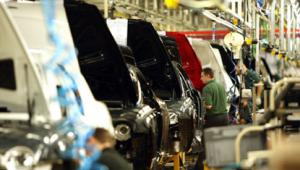Speaking at the think-tank’s annual conference in Leeds on Friday, Ed Cox, director of IPPR North, also expressed his frustration with the portrayal of Northerners in the media as foolish in the wake of the Brexit vote. They had, he said, had expressed their discontent with the “Westminster elite”.
Drawing on findings from the think-tank’s annual State of the North analysis, Cox called on remain voters to listen to, rather than sneer at, the concerns of Northern leave voters, while highlighting the challenges that lie ahead in the region as Brexit becomes a reality.
The think-tank warns that although the referendum was primarily about the UK and Brussels, it tapped into deeper concerns in “left behind” places where people wanted to “take back control” of their economic circumstances.
Leaving the EU, it said, might actually make this more difficult, unless central government develops an industrial strategy that reaches beyond principal city hubs, and enables local leaders to build economic resilience.
According to the analysis, the areas most likely to experience Brexit “turbulence” are in fact those that most strongly voted leave in the referendum on June 23.
Of the North’s 11 economic areas, or local enterprise partnerships, all but one returned a majority Leave vote. Among the regions to vote leave were Cumbria (56%), Greater Manchester (53%), Leeds City Region (55%), Sheffield City Region (62%), Tees Valley (64%), and Humber (65%). Only Liverpool City Region registered a majority Remain vote (51%).
The regions that voted most strongly for Brexit, namely Humber, Tees Valley and Sheffield, are, according to the report, the areas that have yet to transition fully from their industrial pasts.
By contrast, the North’s booming big cities voted remain to a similar extent as London and Scotland. In the city of Manchester, for example, only 39% of residents voted to leave. However, in the wider Greater Manchester economic area, the leave vote rose to 53%. The report concluded that towns within these areas, such as Wigan, which voted leave by 63%, “do not yet feel the benefits of any Powerhouse dividend”.
Report author Luke Raikes said the North’s diverse economy will be a source of strength in the coming years, “but while some areas are well-prepared to adapt, the indications are that others will struggle”.
He added that for the government’s industrial strategy to be effective, the connections between cities and transport must be improved. “And most important of all, the North will need to develop a stronger more inclusive labour market, so that both people and businesses can thrive from northern economic growth.”
The report recommended that European powers pass directly from the European level to communities and regions, and called for the creation of a Northern Brexit Negotiating Committee. This would ensure the North was represented during negotiations with EU members.



















